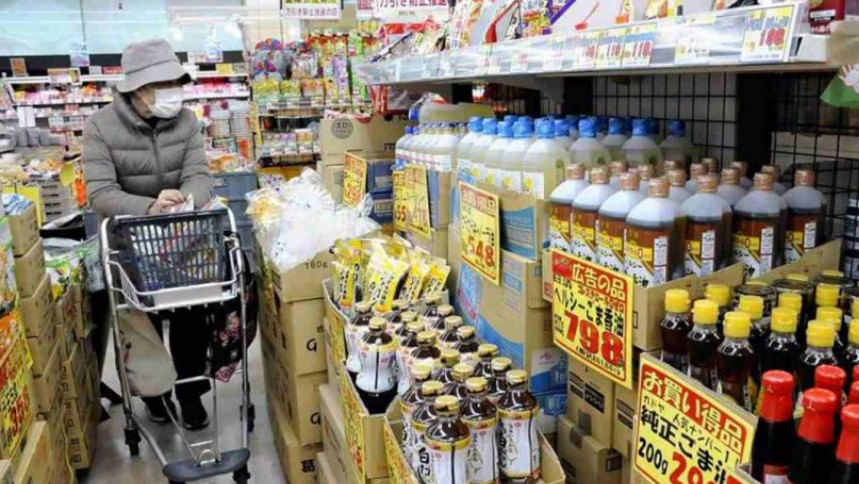
With the prices of daily commodities surging in Japan, a growing number of companies are paying inflation allowances to employees to support their daily lives.
Many companies appear to be trying to boost their appeal to attract talent before the shunto wage negotiations begin in spring.
In December, Mitsubishi Motors Corp paid up to 100,000 yen to its employees as a special assistance allowance.
The company paid out about 1.3 billion yen to about 14,000 workers, including reemployed retirees, contract workers and part-time employees. Management staff did not receive the allowance.
In December, Kobe-based Kenmin Foods Co. gave its staff an allowance, the amount of which was determined by the size of the employee’s household. It also offered the allowance in summer.
“The larger the family, the higher expenses are. We believe that making employees feel secure will help increase their motivation to work,” a company official said.
Research firm Oricon Inc. is giving employees an extra 10,000 yen a month as a special inflation allowance, while electric appliance retailer Nojima Corp. moved forward its pay revisions from April to December and implemented an across-the-board basic pay increase of 20,000 yen per month.
Consumer prices continue to increase. The consumer price index in Tokyo’s 23 wards in December increased 4 per cent year on year, the first time in about 40 years it has reached that level.
Mizuho Research & Technologies Ltd. estimates household spending will increase by 96,000 yen in fiscal 2022 and by 40,000 yen in fiscal 2023.
Many companies think inflation allowances are an effective way to ease the concerns of employees.
In a Teikoku Databank Ltd. survey conducted in November, 26.4 per cent of respondent companies paid or were considering paying such allowances.
“We pay the allowance also as part of efforts to prevent employees from quitting,” a real estate agency said in the survey. Many other respondents cited similar reasons.
A lump-sum allowance was the preferred form of payment for more than 60 per cent of respondents and the average amount was 53,700 yen, with more than 15 per cent of respondents setting the amount at 100,000 yen and above.
The provision of the allowances will help expand consumption to a certain extent, according to Yoshiki Shinke, a senior executive economist at the Dai-Ichi Life Research Institute Inc.
However, “It is desirable to implement an across-the-board basic pay increase in order to help employees cope with price increases,” Shinke said. “We need to closely watch the developments of the shunto negotiations to see whether the current trend will continue to spread.”










